‘I’m not invincible’: Lancashire teacher on coping with terminal secondary breast cancer, being open with her kids, and raising awareness
and live on Freeview channel 276
“I took my husband and our then-three-year-old to the appointment and had the mammogram,” she adds. “As I left the room, the radiographer said ‘good luck’, which I thought was weird. Then, halfway through the ultrasound, the atmosphere changed.
“The radiographer just said ‘I’m going to have to ask your husband to take your daughter out’. I got dressed and I can remember her saying ‘be brave’. I’d just had my 39th birthday when I was diagnosed [with primary breast cancer]. We were just shell-shocked.”
Advertisement
Hide AdAdvertisement
Hide AdClicking into survival mode, Kate says she immediately wanted to know about treatment options. “I didn’t know if it was the end, if it had spread, what treatment would entail…” she says. “I just wanted everything thrown at me to get rid of it.
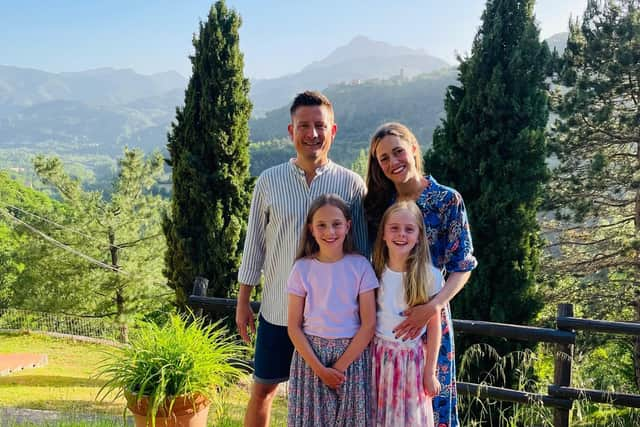

As well as undergoing a course of chemotherapy and radiotherapy, Kate also had a single mastectomy on the day before her daughter’s fifth birthday. “I wasn’t there when she woke up,” she says. “That was really hard. I’d never really had a night away from them before.
“I FaceTimed her from the hospital and tried to put a brave face on after surgery - I just wanted to do everything to make sure it didn’t come back.”
After initial diagnosis, the risk of breast cancer recurrence is highest during the first two years so, in her mind, 24 months was the target for Kate. “I was like ‘I just need to get to two years then I can move on’,” she says. “At the same time, I wasn’t going to worry about it.
Advertisement
Hide AdAdvertisement
Hide Ad“I’d decided that, if it was going to come back, it was going to happen whether I worried or not, but I’d have wasted that time worrying,” she adds. “I had check-ups every three months at [The Christie NHS Foundation Trust] and you had to tell them about every ache and pain.
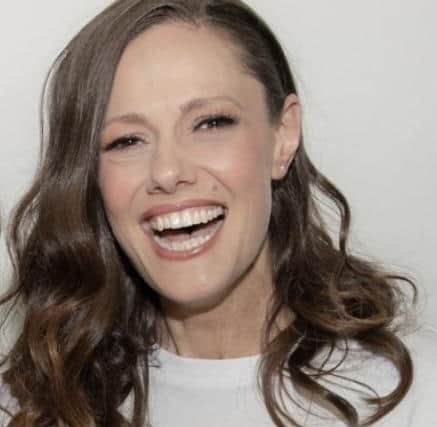

“I’d had a niggle in my hip which I put down to a running injury - I’d actually never been fitter or healthier,” Kate continues. “I mentioned it at the end of an appointment and they said I was probably right, but that they’d scan me just to be sure.
“As I left, I asked if I needed to be worried and they said ‘no, it’s probably just an injury’ and told me that, if everything was fine, they’d tell me over the phone and, if not, they’d bring me in. I was in a staff meeting when I got the call.
“The lady went ‘hi, I’ve got your scan results - can you come in and see us tomorrow?’ I just said ‘no, no, no, no, no…’”
Advertisement
Hide AdAdvertisement
Hide AdAlmost exactly two years on from the end of her treatment for primary breast cancer, Kate was diagnosed with secondary breast cancer, also known as metastatic breast cancer (MBC), in April 2019. An incurable disease, the median life expectancy after diagnosis is three years.
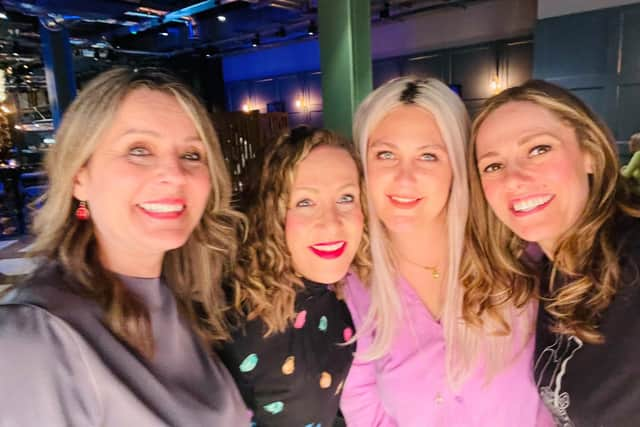

MBC kills 40,000 women annually, including 1,000 each month in the UK alone. Yet, despite the condition’s terminal nature, a far smaller proportion of breast cancer research funding goes into secondary breast cancer compared to primary breast cancer.
What’s more, while some 35,000 people in the UK currently live with MBC, a recent YouGov poll revealed that 38% of the population is unaware the disease even exists, while 21% of those who are familiar with MBC were unable to name any common symptoms.
“From the start, I just went into survival mode,” says Kate, 44, who lives in Salford where she works as a primary school teacher. “It’s scariest when there isn’t a plan - it’s terrifying because your mind goes to some very dark places.
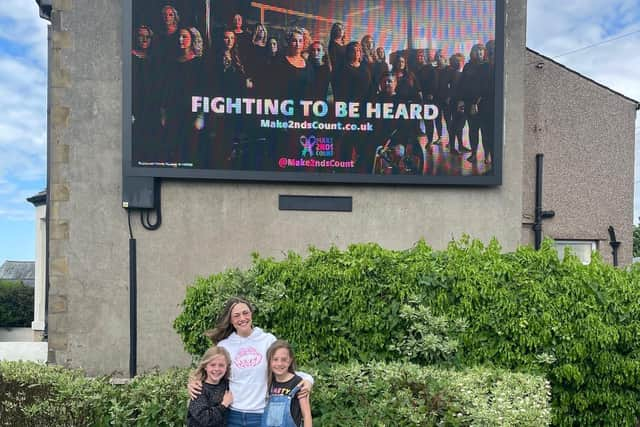

Advertisement
Hide AdAdvertisement
Hide Ad“But my husband thinks I have a gift for being able to put things in a box and not think about them until I need to,” she adds. “It sounds weird, but my personality lends itself well to a terminal diagnosis because I’ve never looked too far ahead and always live in the moment.
“Compartmentalising keeps me positive,” she explains. “And I don’t do things I don’t want to, I just try to have fun.” A warm smile breaks out across Kate's face. Flipping her Zoom camera, she shows me the view from the Tuscan villa where the family are on holiday.
With cancer currently in her spine, pelvis, and liver, Kate is on a highly-manageable treatment plan which hasn’t caused any hair-loss and which enables her to work full-time. At some point, however, the treatment will become less effective and she’ll move on to another until that loses its efficacy too.
“Eventually, they’ll run out of treatment options and that’s when it’s game over,” says Kate stoically. “It is what it is. I try to be as normal as possible for the sake of the kids and to keep everyone positive. I don’t cry about things often but, when I do, they never see me crying.
Advertisement
Hide AdAdvertisement
Hide Ad“We’re open with the children, so they know I’ve got cancer and that I’m different, but they don’t know it’s terminal,” she adds. “They can ask us any questions they have, but there’s a fine line between keeping them in the loop and completely destroying their childhoods.
“The fact that they haven’t asked us that question tells us they’re probably not ready to hear the answer,” continues Kate. “But it’s only a matter of time, especially with the 10-year-old. You just can’t lie because, if I do, they’ll probably be bitter when I’m gone.
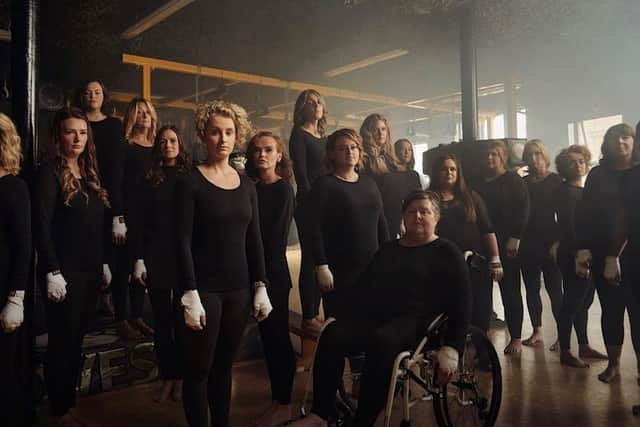

“Sure, every night when I go to bed and every morning when I wake up, it’s there. But that’s why I still work - at school, I’m Kate the teacher, not Kate with terminal cancer. There’s fear of the unknown, but otherwise I just focus on that three-month cycle of hospital scans.”
Also keen to give back, Kate was recently part of a new national campaign from family-focused charity Make 2nds Count called 'Fighting To Be Heard' which seeks to raise awareness of the symptoms of MBC and of the disease in general.
Advertisement
Hide AdAdvertisement
Hide AdBorn of women’s shared experiences of being perceived as less important breast cancer patients due to the rarity of MBC, Kate jumped at the chance to be involved in Fighting To Be Heard and has even appeared on billboards with her family in both Morecambe and Salford.
“We’d all benefit - primary and secondary patients - from more research into secondary breast cancer and it seems crazy that you can survive primary breast cancer and yet they’re getting all the money,” explains Kate. “I wanted to do something about that injustice.
“There were 20 of us in the initial photoshoot and we immediately struck up this bond because we’re all in the same situation,” she adds. “They’re my cancer family and we’re so close, even though some of us have only met once. I genuinely love these women.
“It’s so reassuring to have people who know what you’re going through, who know that you might not be here in three months’ time - two of the women involved in the photoshoot have since died, which was really hard.
Advertisement
Hide AdAdvertisement
Hide Ad“But I’ve had three years to get my head around the fact that I’m not invincible and that I’m probably not going to live to be an old lady. And being involved in the Fighting To Be Heard campaign has connected me to so many other women. That makes me feel like it’s working.”
Follow Kate on Twitter here.
